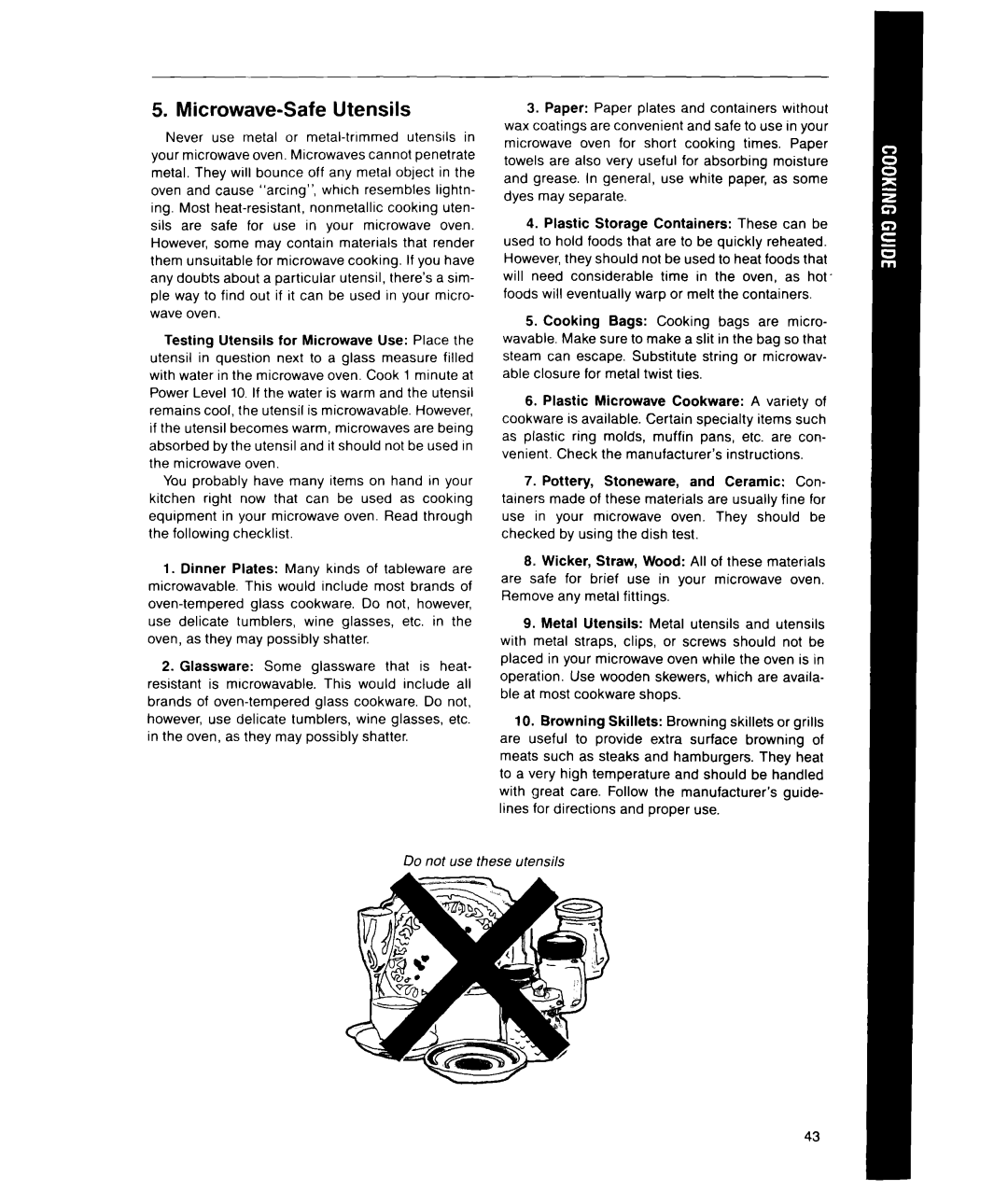
5. Microwave-Safe Utensils
Never use metal or
Testing Utensils for Microwave Use: Place the utensil in question next to a glass measure filled with water in the microwave oven. Cook 1 minute at Power Level 10. If the water is warm and the utensil remains cool, the utensil is microwavable. However, if the utensil becomes warm, microwaves are being absorbed by the utensil and it should not be used in the microwave oven.
You probably have many items on hand in your kitchen right now that can be used as cooking equipment in your microwave oven. Read through the following checklist.
1.Dinner Plates: Many kinds of tableware are microwavable. This would include most brands of
2.Glassware: Some glassware that is heat- resistant is microwavable. This would include all brands of
3.Paper: Paper plates and containers without wax coatings are convenient and safe to use in your microwave oven for short cooking times. Paper towels are also very useful for absorbing moisture and grease. In general, use white paper, as some dyes may separate.
4.Plastic Storage Containers: These can be used to hold foods that are to be quickly reheated. However, they should not be used to heat foods that will need considerable time in the oven, as hot- foods will eventually warp or melt the containers.
5.Cooking Bags: Cooking bags are micro- wavable. Make sure to make a slit in the bag so that steam can escape. Substitute string or microwav- able closure for metal twist ties.
6.Plastic Microwave Cookware: A variety of cookware is available. Certain specialty items such as plastic ring molds, muffin pans, etc. are con- venient. Check the manufacturer’s instructions.
7.Pottery, Stoneware, and Ceramic: Con- tainers made of these materials are usually fine for use in your microwave oven. They should be checked by using the dish test.
8, Wicker, Straw, Wood: All of these materials are safe for brief use in your microwave oven. Remove any metal fittings.
9.Metal Utensils: Metal utensils and utensils with metal straps, clips, or screws should not be placed in your microwave oven while the oven is in operation. Use wooden skewers, which are availa- ble at most cookware shops.
10.Browning Skillets: Browning skillets or grills are useful to provide extra surface browning of meats such as steaks and hamburgers. They heat to a very high temperature and should be handled with great care. Follow the manufacturer’s guide- lines for directions and proper use.
43
